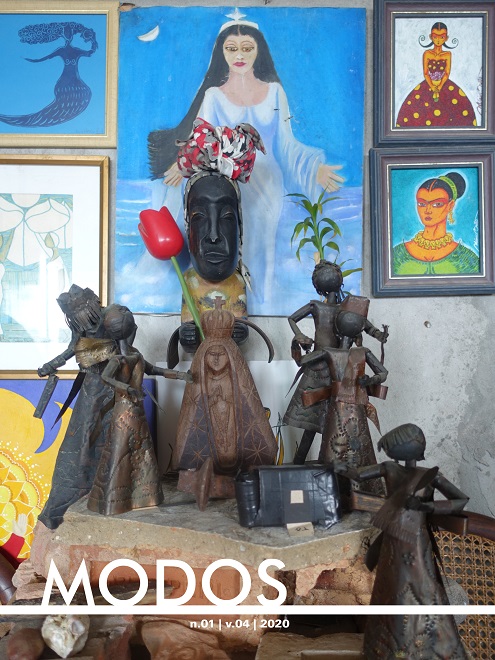Resumo
The Situationist International was a radical artistic organization that existed from 1957 to 1972, and whose internationalism was modeled on the avant-garde attempt to transform the world’s conditions. Though based in France, it sought and had adherents in diverse countries across Europe and even the US, but, like Surrealism before it, the organization became notorious for its exclusions. The first collective expulsion was in 1962, when Dutch artist Jacqueline de Jong created an alternative form of the Situationist International with its “exiles” under the banner of the magazine The Situationist Times. In a manifesto-styled inaugural text, de Jong emphasized the width of the situationist project, calling it a “movement” based on the heterogeneous nature of transnational cooperation. This essay will compare the internationalisms of both groups, taking as vantage point the difference between “movement” and “organization”, which configures the manners in which artists and writers from different countries participated in each. Thus, the networks they established framed the form and content of their respective journals; The Situationist Times, for example, was a multilingual, labyrinthine production anarchically directed by de Jong, whereas Internationale Situationniste was monolingual and programmatically structured by the SI’s Central Committee.
Referências
CHASSE, R..; ELWELL, B. A Field Study in the Dwindling Force of Cognition, Where it is Expected Least: A Critique of the Situationist International as a Revolutionary Organization, 1970. Available in ˂http://www.notbored.org/ field-study.html˃. Accessed September 9, 2019.
DEBORD, G. Remarks on the SI Today, 1970. Translated by Ken Knabb, available in ˂http://www.bopsecrets.org/SI/internal.htm#Remarks%20on%20the%20SI%20Today˃. Accessed September 9, 2019.
KNABB, K. Situationist International Anthology. New York: Bureau of Public Secrets, 2006.
KUGELBERG, J. (ed.). Introduction to the Situationist Times Facsimile. New York: Boo-Hooray, 2013.
KURCZYNSKI, K. The Art and Politics of Asger Jorn: The Avant-Garde Never Gives Up. Surrey: Ashgate Publishing, 2014.
MOSCONI, P. (ed.). Internationale situationniste: Édition augmentée. Facsimile edition of Internationale situationniste. Paris: Librairie Arthème Fayard, 1997.
FELICI, A. Multilingualism in EU Law: How Promulgation Authenticates Equality, Comparative Legilinguistics, vol. 2, 2010.
GOMBIN, R. The Radical Tradition: A Study in Modern Revolutionary Thought. London: Methuen, 1978.
MOSCONI, P (ed.). Internationale Situationniste. Facsimile edition. Paris: Arthème Fayard, 1997.
RASMUSSEN, M. B.; JAKOBSEN, J. (eds.). Cosmonauts of the Future: Texts from the Situationist Movement in Scandinavia and Elsewhere. Copenhagen: Nebula, 2015.
RASMUSSEN, M. B.; JAKOBSEN, J. (eds.). Expect Anything Fear Nothing: The Situationist Movement in Scandinavia and Elsewhere. Copenhagen: Nebula, 2011.
SCRIBNER, C. Buildings on Fire: The Situationist International and the Red Army Faction, Grey Room, n. 26, 2007.
STACEY, F. Constructed Situations. London: Pluto Press, 2014.
THE SITUATIONIST TIMES, National Art Library: X930221. 1962.

Este trabalho está licenciado sob uma licença Creative Commons Attribution-NonCommercial-ShareAlike 4.0 International License.
Copyright (c) 2020 MODOS

